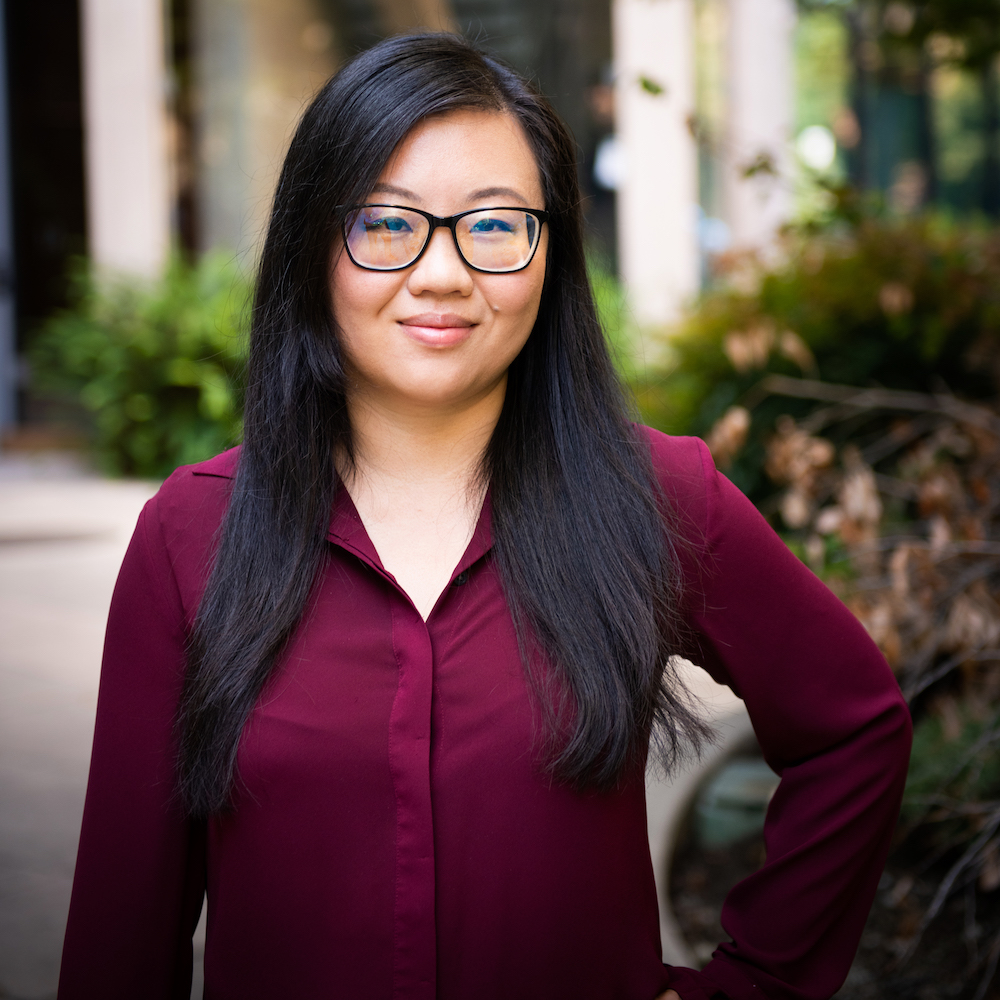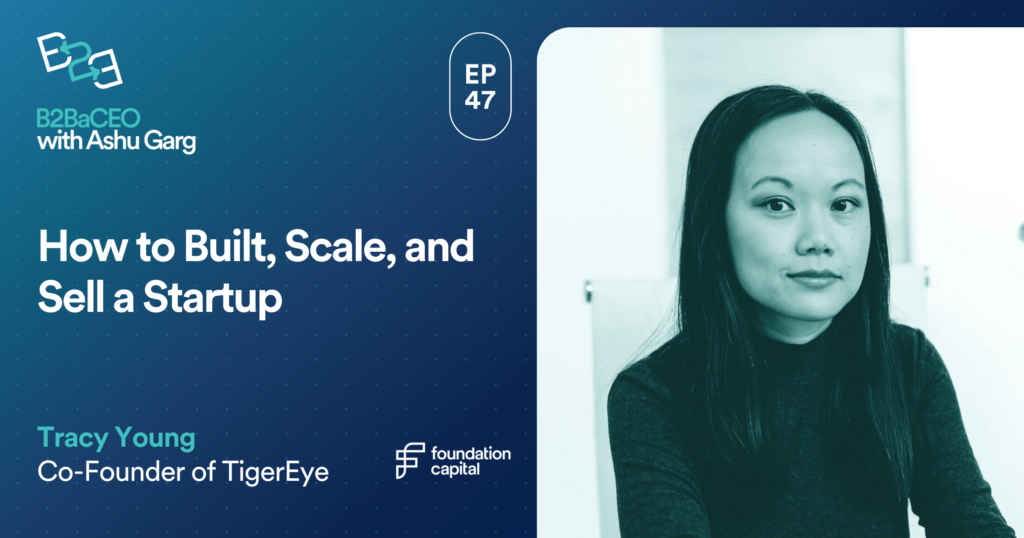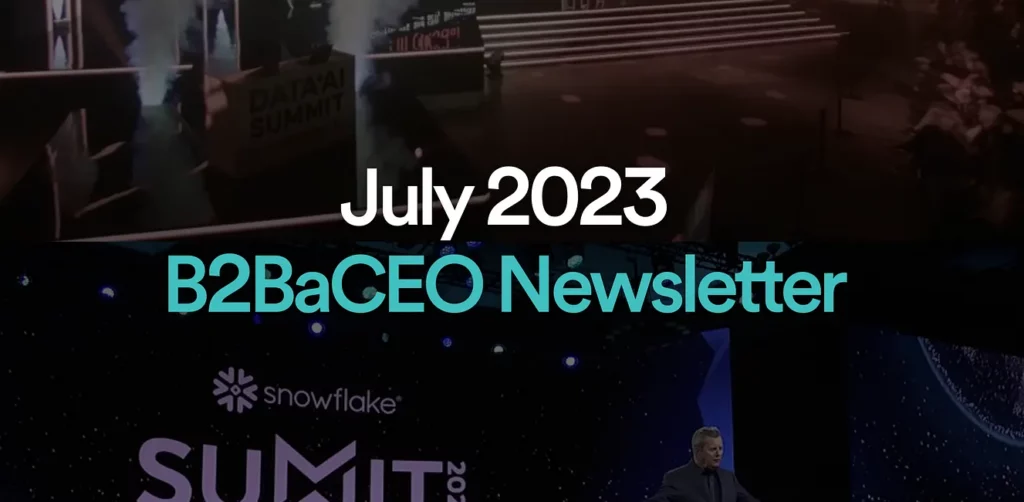Beyond Doomsday: Why AI Promises a Brighter Future
This fall, I had the honor of speaking at TEDx about the immense promise I see in artificial intelligence.
11.09.2023 | By: Joanne Chen
Drawing on my decade of experience investing in AI startups, I shared my optimism about how this technology, if developed thoughtfully, will make our world more prosperous, equitable, and fundamentally human. This perspective builds on my TEDx talk in December 2019, where I explored AI’s vast potential along with its profound risks.
What follows is an adapted version of my recent remarks with additional research and examples that offer a more complete picture of how AI can be a force for tremendous good in our world. Realizing this aspiration will require an ongoing dialogue among technologists, policymakers, and everyday citizens regarding the role AI should play in our society. I feel grateful to contribute however modestly to this crucial conversation.
For many of us, 2023 has been the year we truly realized that AI was here, and that it was a technology to be reckoned with. Its rapid advances have left us grappling with profound questions about its implications for our economy, our society, and our understanding of ourselves.
I‘ve been investing in AI startups for the last decade. Every day, I meet with researchers and entrepreneurs at the forefront of this fast-evolving technology. Through countless conversations and product demos, I’ve developed deep conviction that the future of AI is not just bright: it’s radiant. Far from an existential threat to humanity, AI is a tool that can bring us more abundance than we can imagine.
Throughout history, we’ve invented technologies that extend our abilities. The wheel extends our motion, the television extends our senses, the computer extends our cognition. Such extension is also the essence of our relationship with AI. Rather than an “us versus them” struggle, AI presents a profoundly positive-sum proposition for humanity. Indeed, thanks to AI, the future will be more prosperous, more equitable, and more human. Allow me to share why.
More Prosperous
Imagine you’re alive in 1900 and I tell you that by 2023, most jobs that exist will disappear. Panic, right? Well, fast forward to today, and we have more jobs with higher wages than ever before, almost all of which are in fields that were unimaginable 70 years ago. This trend will continue thanks to AI.
The reason is counterintuitive: as supply increases, so too does demand. This quirk of economics is known as the Jevons Paradox. In the mid-19th century, economist William Stanley Jevons observed that, as the steam engine became more efficient, coal consumption did not decrease, as you might expect. Rather, it increased! Turns out, people didn’t just use steam engines to do the same things more cheaply: they started using the steam engine to do more things. Otherwise put, when the supply of steam power increased, demand for it also increased.
The same pattern played out in the banking sector in the mid-1990s. As ATMs surged in popularity, everyone braced for the death of the bank teller. As with the steam engine, the greater supply of banking services led to more demand for banking services, which was great news for bank tellers! Their role evolved from dispensing cash to providing a variety of personalized services, from basic account handling to custom wealth management. As a result, bank teller jobs have not only persisted: they’ve grown at rate that’s outpaced that of the overall labor force.
These aren’t isolated cases. Time and time again, we’ve seen a new technology that’s feared as a job killer end up expanding opportunities. This happens because when a good or service becomes more abundant, we find new ways to use it. Cheaper banking? We demand more banking services. Affordable energy? We create novel energy-consuming products.
The same logic applies to AI. Think of AI as an increase in the global supply of intelligence. As the supply of intelligence increases, we’ll demand more products that require intelligence. We won’t use AI to simply do the same things more cheaply. Rather, we’ll use it to do more things better and more efficiently. More than simply automating existing tasks, AI will exponentially expand the size, nature, and scope of tasks that we can achieve—and in the process, create more jobs for all of us.
More Equitable
Another common fear I hear: the rise of AI will widen the gap between the haves and have-nots. But I see a different future—one where AI can level the playing field.
First, consider healthcare. A third of Americans struggle with healthcare costs, and over two-thirds feel they’re not getting value for their money. I’ve felt this personally— I was shocked at how much I paid for a 30-minute virtual consult with a specialist not in my insurance network. AI can solve this by offering personalized healthcare expertise at virtually no cost. AI can also help overworked doctors reduce decision-making burden. It can even flip the “one size fits all” paradigm of medicine. Instead, it will collect data from our bodies, and with that data, power simulations of how our bodies will react to a treatment. Doctors can test multiple treatments before selecting the optimal one. With this data, AI can also fast-track development of new drugs more affordably.
Now let’s look at how AI can expand access to education. In fifth grade, I struggled with math. My grandfather saw this and tutored me every day. By seventh grade, I was no longer struggling, I was thriving. I went on to win math competitions and, later, I chose to study engineering at Berkeley.
Not every child is as lucky as I was. By 2030, the UN estimates that we will need 70 million new teachers to provide the most basic education for all children. AI can help fill this gap. Imagine a child, rich or poor, with an AI tutor tailored to her needs. This AI can be her lifelong companion, and later help her learn new skills if she’s displaced by the next technology advancement.
AI can also translate language in real-time with high fidelity. For a child who doesn’t speak English, like me when I was 10 years old, this means a chance to break free from the economic ceiling set by her native tongue. In fact, without language barriers, researchers from different countries will be able to collaborate. Art, literature, and music will move fluently across borders. Our empathy for different cultures will deepen. AI promises a future where ideas and opportunities aren’t just for the lucky few, but accessible by all.
More Human
A future with AI can be more prosperous and equitable. But, will AI take away what it means to be human? No, to the contrary: I believe AI will magnify the importance of traits that are uniquely human.
Before I explain why, let’s talk about how an AI works. AI is simply a machine that makes predictions. It makes predictions based on training data. Think Netflix, which takes what you’ve watched before and recommends what else you might like to watch. Or Google Maps, which analyzes thousands of prior driving times for a route to predict your future driving time for that route. These prediction machines have been around a long time—more than 80 years!—and they’ve evolved largely thanks to the emergence of Internet-scale data and the decrease in computation costs.
Now let’s look at how a human works. This morning, I woke up to my cat Mimi purring and felt my heart swell with love. Later, I felt guilty when I realized I’d missed a friend’s birthday. I felt worried when I thought of my aunt who recently had a stroke. By this point, I was possibly late to work, so I texted my coworker: “Sorry, 5 min late!”
The only data an AI can capture from my morning is my text message, “Sorry, 5 min late!” None of the emotions, the memories, the millions of neurons that fired, the essence of me from that morning is gathered by the prediction machine. It’s only using what I write, which is a tiny output of how I feel and what I’ve experienced, as training data. Could it predict what I would do? Absolutely not. Could it at some point capture more of my neurons? Possibly, but we’ll first need to understand both our brains and ourselves a lot better.
AI will never become us. AI may be fast and efficient, but it lacks our emotional depth. Our capacity for empathy, compassion and self-awareness will remain traits that are uniquely ours.
AI can flag signs of depression from text and speech patterns, but only a doctor can grasp the raw intensity of a patient’s fear and say “I’m here for you: we’ll get through this together.”
AI can generate infinite content tailored to a child’s abilities, but only a teacher can inspire the dreams and hidden talents of a struggling student.
AI can translate and rank resumes, but only a recruiter will sense the raw drive of a non-English speaking mother who has never gone to college.
And remember my grandfather who tutored me? Well, he’s now 107, and he lives in China. He often complains of loneliness. What’s worse, due to Covid restrictions, I couldn’t visit him for the last 4 years.
He loves Yuval Noah Hariri’s Sapiens, a book about human evolution, so I use an AI recommendation system to find similar books to send to him. His mobility is limited, so we use a video conferencing system that uses AI to follow him around his home. And while AI can enrich his life, nothing could compare to the love and the human connection we both felt when I was finally able to make the trip to see him in China last month.
When we pair our strengths with those of AI, matching our emotional smarts with its scalability and speed, we’ll achieve far more than we could alone. if we get this partnership right, we’ll usher in an unprecedented future: a future more prosperous, more equal, and most importantly more human.
Conclusion
AI’s advancement is inevitable, and its path is ours to shape. Without doubt, it comes with serious risks. Concerns about misinformation, job displacement, and cyber attacks are real. However, it’s crucial to understand that these risks can be managed. We’ll need to adapt existing laws and design new ones. We’ll also need to use AI to mitigate many of the problems that it may amplify. But the gains for humanity are far too great for us not to continue pushing AI’s frontier. That’s why I have dedicated my career to doing so.
Published on 11.09.2023
Written by Joanne Chen


